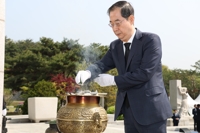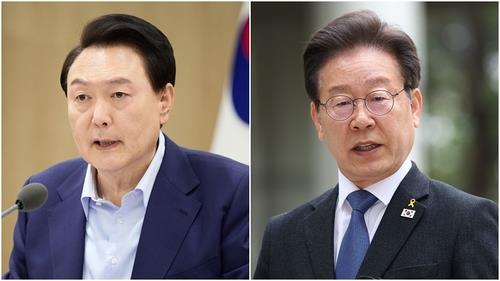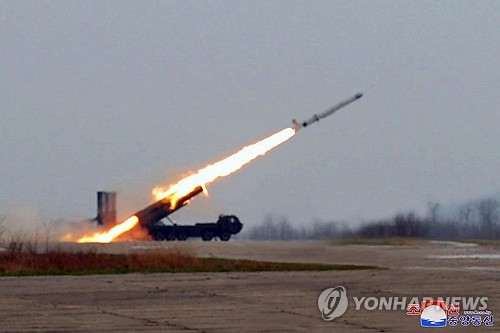Post-election U.S. will continue to engage N. Korea in conversation: U.S. lawmaker
By Byun Duk-kun
WASHINGTON, Sept. 24 (Yonhap) -- The United States will continue to engage in conversation with North Korea regardless of who wins the upcoming presidential election, a U.S. lawmaker said Thursday.
Rep. Ami Bera (D, CA-7), however, cast doubt over an October surprise meeting between U.S. President Donald Trump and North Korean leader Kim Jong-un.
"I doubt there's any room for negotiations or conversation with the North pre-election. Would something happen post election? Perhaps," he said in a virtual seminar hosted by the Washington-based Center for Strategic and International Studies (CSIS).
Trump has held three meetings with Kim, including their first bilateral summit in Singapore in June 2018. But their talks have stalled since their second summit, in Hanoi in February 2019, ended without a deal.
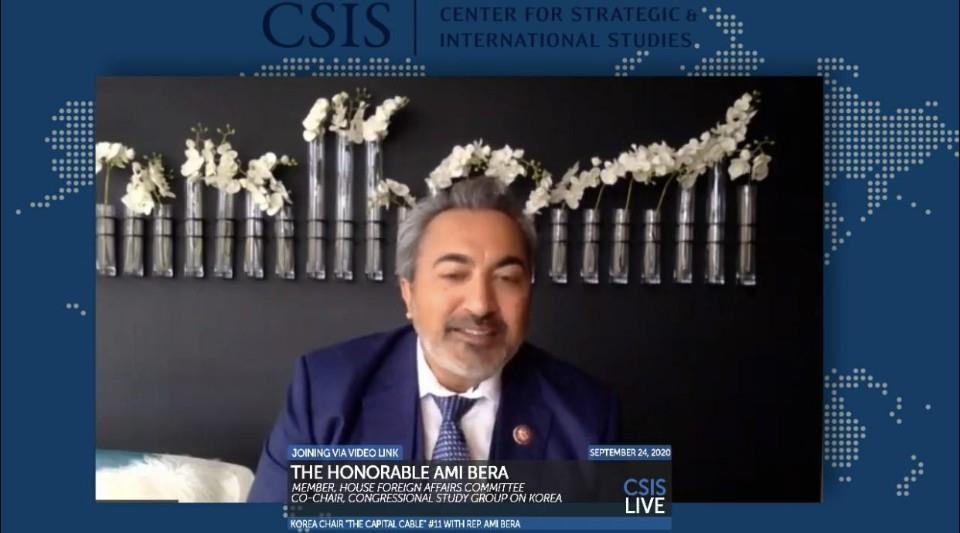
The captured image from the website of Washington-based think tank, Center for Strategic and International Studies (CSIS), shows Ami Bera, a Democratic member of the House of Representatives and chairman of the House Subcommittee on Asia, the Pacific and Nonproliferation, speaking in a webinar hosted by the CSIS on Sept. 24, 2020. (Yonhap)
Bera said Joe Biden, former vice president and now the Democratic candidate for president, too will engage with North Korea should he emerge victorious in the Nov. 3 election.
"I can see a scenario where the vice president would engage in that, particularly because (South Korea's) Moon Jae-in administration has an interest in continuing these talks," he told the webinar, noting Biden is considered to be "much more traditional" than Trump when it comes to foreign policy.
"I think he (Biden) would engage a little bit more than President Trump has on these (foreign policy) issues," added Bera, who currently heads the House Subcommittee on Asia, the Pacific and Nonproliferation.
The lawmaker insisted a Biden administration would also work to quickly resolve a deadlock in defense cost-sharing negotiations between the U.S. and South Korea, highlighting what he called "bipartisan support" in U.S. Congress to resolve the issue.
"I think, very quickly, a Biden administration, you would resolve the burden sharing issue. And I think there's broad bipartisan support to get this resolved in Congress," he said.
Seoul and Washington have held several rounds of the cost-sharing negotiations since late last year, but continue to show a large gap.
South Korea has offered to increase its burden sharing by up to 13 percent from the US$870 million it paid under last year's agreement.
The U.S., on the other hand, is said to be asking for a 50 percent spike to $1.3 billion, while earlier reports suggested that Trump had initially demanded Seoul to shoulder $5 billion a year while threatening to pull at least part of U.S. troops stationed in South Korea.
In his recently published book, "Rage," Washington Post journalist Bob Woodward also quoted Trump as telling his military officials to pull out U.S. troops from South Korea and Afghanistan.
The Democratic lawmaker insisted a Biden administration would not talk about pulling out troops.
"I don't think a Biden administration would talk about reducing forces, not at this particular time, when there are real tensions in the region," said Bera.
Should Trump get reelected, he too would "try to restart talks" with South Korea on defense cost-sharing, he noted.
With regard to the ongoing U.S. initiative to build a NATO-like collective security structure in the Indo-Pacific region, the U.S. lawmaker agreed on the need for such a multilateral alliance, but said it must not lead to a confrontation with China, especially for countries in the region.
"It's not the United States or China. The countries in the region will have to co-exist with both global powers," he said.
The Trump administration has said membership in the envisioned multilateral alliance, currently known as the Quad with the membership of four countries -- Australia, India, Japan and the U.S. -- would not mean taking sides with the U.S. over China.
Still, Washington has made it clear that countering what it calls "aggressions from the Chinese communist party in all domains" would be one of its objectives.
"We're always going to compete with China but let's do so under the rule of law," said Bera. "So I think you can create those alliances in the region, then hopefully nudge China in a better direction."
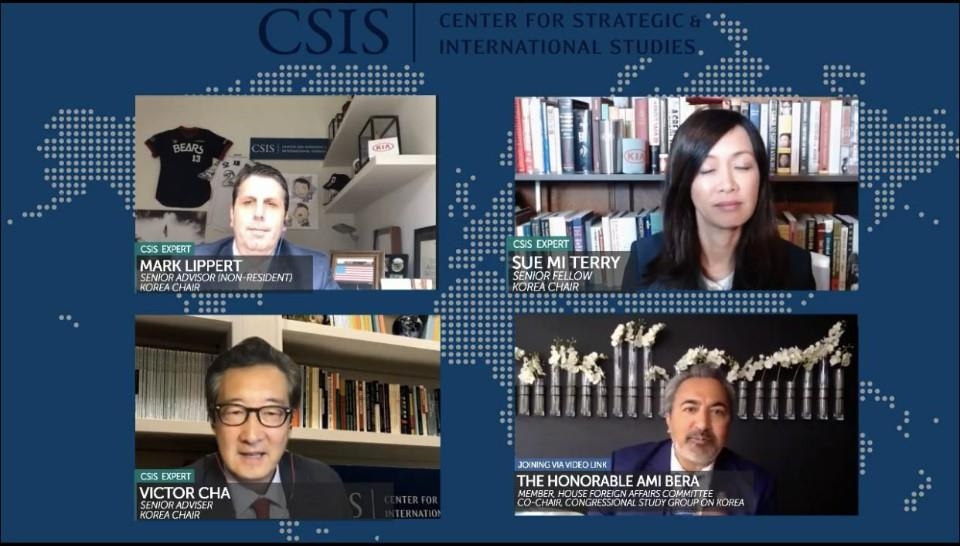
The captured image from the website of the Center for Strategic and International Studies (CSIS) shows the participants at a webinar held Sept. 24, 2020. They are (from top L, clockwise) Mark Lippert, former U.S. ambassador to South Korea, Sue Mi Terry, CSIS fellow and former CIS official, Rep. Ami Bera (D, CA-7) and Victor Cha, Korea chair at CSIS and former director for Asian affairs at the White House's National Security Council. (Yonhap)
Meanwhile, experts at Thursday's webinar expressed concerns over the recent killing of a South Korean government official by North Korea, noting the incident may undermine South Korea's recent push for reconciliation with the communist state and its efforts to denuclearize the Korean Peninsula.
"(It is) very, very inconvenient, I would say, for the Moon government, given that President Moon had just given this big speech at the UN General Assembly where he talked about inter-Korean reconciliation and a peace initiative as sort of the door opener to making progress on denuclearization," said Victor Cha, a Korea expert at CSIS and former director for Asian affairs at the U.S. National Security Council.
On Tuesday, the South Korean president called for international support for declaring an end to the 1950-53 Korean War, which ended only with an armistice treaty, technically leaving the divided Koreas at war.
"I just think it's really unfortunate timing," said Sue Mi Terry, a former CIA official now serving as a CSIS fellow.
"They are trying to make something happen with North Korea. Not getting anywhere," she added.
bdk@yna.co.kr
(END)
-
 Overdue debut of Korean abstract art pioneer Yoo Young-kuk at Venice Biennale
Overdue debut of Korean abstract art pioneer Yoo Young-kuk at Venice Biennale -
 Defense chief says N. Korea's hypersonic missile 'unsuccessful' in last-stage glide flight
Defense chief says N. Korea's hypersonic missile 'unsuccessful' in last-stage glide flight -
 Relax, immerse yourself in scents at Venice Biennale's Korean Pavilion
Relax, immerse yourself in scents at Venice Biennale's Korean Pavilion -
 N. Korea has capability to genetically engineer biological military products: U.S. report
N. Korea has capability to genetically engineer biological military products: U.S. report -
 S. Korea marks 30th anniv. of Korean Pavilion at Venice Biennale with contemporary art
S. Korea marks 30th anniv. of Korean Pavilion at Venice Biennale with contemporary art
-
 Overdue debut of Korean abstract art pioneer Yoo Young-kuk at Venice Biennale
Overdue debut of Korean abstract art pioneer Yoo Young-kuk at Venice Biennale -
 Relax, immerse yourself in scents at Venice Biennale's Korean Pavilion
Relax, immerse yourself in scents at Venice Biennale's Korean Pavilion -
 Artist Lee Bae captures ethereal Korean aesthetics at Venice Biennale
Artist Lee Bae captures ethereal Korean aesthetics at Venice Biennale -
 S. Korea marks 30th anniv. of Korean Pavilion at Venice Biennale with contemporary art
S. Korea marks 30th anniv. of Korean Pavilion at Venice Biennale with contemporary art -
 Defense chief says N. Korea's hypersonic missile 'unsuccessful' in last-stage glide flight
Defense chief says N. Korea's hypersonic missile 'unsuccessful' in last-stage glide flight
-
 Gov't likely to accept university chiefs' request to lower med school enrollment quota
Gov't likely to accept university chiefs' request to lower med school enrollment quota -
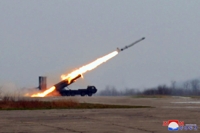 N. Korea says it conducted 'super-large warhead' test for strategic cruise missile
N. Korea says it conducted 'super-large warhead' test for strategic cruise missile -
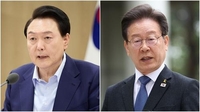 (LEAD) Yoon proposes first-ever meeting with opposition leader
(LEAD) Yoon proposes first-ever meeting with opposition leader -
(URGENT) N. Korea conducted 'super-large warhead' test for strategic cruise missile: KCNA
-
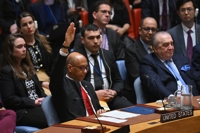 S. Korea supports resolution backing U.N. membership of Palestine
S. Korea supports resolution backing U.N. membership of Palestine

















